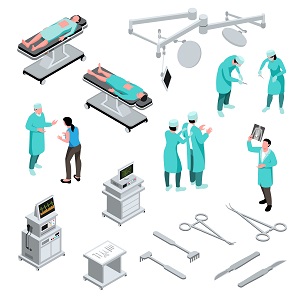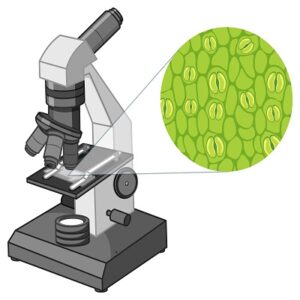Introduction :
The Equipment for Neurosurgery Market encompasses a range of specialized devices and instruments used in the diagnosis, treatment, and surgical management of neurological disorders. This includes tools for brain surgery, spinal procedures, and other neurological interventions.The Equipment for Neurosurgery Market is a vital sector within the medical device industry, driven by increasing incidences of neurological disorders and advancements in surgical technologies.
This market includes a broad array of equipment such as neuroendoscopes, surgical microscopes, navigation systems, and stereotactic systems, each playing a crucial role in precise and minimally invasive procedures. Technological innovations, such as robotic-assisted surgery and advanced imaging systems, are enhancing the accuracy and effectiveness of neurosurgical interventions. With a growing emphasis on patient safety and reduced recovery times, the demand for cutting-edge equipment is rising.
Additionally, the aging population and the prevalence of conditions like brain tumors, epilepsy, and spinal cord injuries contribute to market expansion. The market is characterized by a high level of competition among leading players, who are continually developing and introducing advanced solutions to meet evolving clinical needs. Investment in research and development, coupled with the increasing adoption of minimally invasive techniques, is expected to drive significant growth in the neurosurgery equipment sector.
Get a Sample Copy of the Report to Know More: https://medicalmarketreport.com/report/global-equipment-for-neurosurgery-market/#requestForSample
Key Takeaways:
Market Growth: The Equipment for Neurosurgery Market is expanding rapidly due to rising incidences of neurological disorders and ongoing advancements in surgical technology. The need for precise and efficient treatment options is driving this growth.
Technological Advancements: Innovations such as robotic-assisted surgery, advanced imaging systems, and neuroendoscopes are transforming neurosurgical procedures. These technologies enhance surgical precision, reduce recovery times, and improve patient outcomes.
Aging Population: As the global population ages, the prevalence of neurological conditions like brain tumors, spinal disorders, and epilepsy increases. This demographic shift is fueling demand for advanced neurosurgical equipment.
Minimally Invasive Techniques: There is a growing preference for minimally invasive surgical techniques, which are less traumatic for patients and offer quicker recovery. This trend is driving the development and adoption of sophisticated tools and devices designed for minimally invasive procedures.
Key Players: The market is highly competitive, with major players such as Medtronic, Stryker, and Johnson & Johnson leading the field. These companies are investing heavily in research and development to introduce innovative solutions and maintain their market positions.
Patient Safety and Efficiency: Modern neurosurgical equipment focuses on enhancing patient safety and operational efficiency. Features like real-time imaging and precision instruments help surgeons perform complex procedures with greater accuracy and safety.
Emerging Markets: Growth opportunities are also emerging in developing regions where access to advanced neurosurgical technology is increasing. As healthcare infrastructure improves, these markets are expected to see significant growth.
Key Segmentation analysis :
- By Type:
- Neuroendoscopes: Used for minimally invasive brain and spinal surgeries.
- Surgical Microscopes: Enhance visibility during complex procedures.
- Navigation Systems: Provide precise guidance during surgeries.
- Robotic Systems: Assist with precision and control in surgery.
- By Application:
- Brain Surgery: Equipment designed for procedures involving brain tissues.
- Spinal Surgery: Tools specifically for spinal cord and vertebrae interventions.
- Neurovascular Surgery: Devices for treating blood vessels in the brain.
- By End-User:
- Hospitals: Major settings where neurosurgical procedures are performed.
- Specialized Clinics: Facilities focused on neurological care.
- Research Institutions: Centers involved in developing and testing new technologies.
- By Technology:
- Traditional Systems: Standard equipment used in conventional neurosurgery.
- Advanced Systems: Cutting-edge technology like robotic-assisted and AI-driven devices.
- By Region:
- North America: Leading market due to high healthcare standards and technological advancements.
- Europe: Significant growth driven by increasing healthcare investments.
- Asia-Pacific: Emerging market with rising healthcare infrastructure and demand.
- By Distribution Channel:
- Direct Sales: Sales through manufacturers directly to end-users.
- Distributors: Sales through intermediaries who supply hospitals and clinics
Driver:
One of the key drivers of the Equipment for Neurosurgery Market is the increasing prevalence of neurological disorders. Conditions such as brain tumors, spinal cord injuries, and epilepsy are on the rise, largely due to an aging population and lifestyle factors. As these conditions become more common, the demand for advanced neurosurgical equipment grows. Technological advancements also play a significant role. Innovations like robotic-assisted surgery, advanced imaging systems, and minimally invasive tools improve surgical precision and patient outcomes, driving the adoption of new equipment. Additionally, rising healthcare expenditure globally supports the acquisition of advanced medical technologies, further fueling market growth.
Trend:
A major trend in the Equipment for Neurosurgery Market is the shift towards minimally invasive surgical techniques. These methods, which involve smaller incisions and reduced trauma, are becoming increasingly popular due to their benefits, including shorter recovery times and less postoperative pain. This trend is driving the development and adoption of advanced equipment designed for minimally invasive procedures, such as neuroendoscopes and specialized surgical microscopes. Another significant trend is the integration of digital technologies, such as artificial intelligence and augmented reality, into neurosurgical equipment. These technologies enhance surgical planning, navigation, and precision, making complex procedures more manageable and improving patient outcomes.
Restraint:
Despite the positive outlook, several factors can restrain market growth. High costs associated with advanced neurosurgical equipment can limit accessibility, particularly in developing regions where budget constraints are more pronounced. Additionally, the need for specialized training and expertise to operate sophisticated devices can be a barrier, as it requires significant investment in education and training programs. Regulatory hurdles and lengthy approval processes for new devices can also delay the introduction of innovative technologies to the market. These factors collectively pose challenges to the widespread adoption of advanced neurosurgical equipment.
Opportunity:
There are notable opportunities in the Equipment for Neurosurgery Market, particularly in emerging markets. As healthcare infrastructure improves in regions like Asia-Pacific and Latin America, there is increasing potential for market expansion. Additionally, ongoing research and development are likely to lead to the introduction of new, innovative devices that address current limitations and offer enhanced functionality. The rise of telemedicine and remote surgical capabilities also presents opportunities for growth, allowing for expanded access to advanced neurosurgical care in underserved areas. Investment in these technologies can drive further market expansion and improve global access to cutting-edge neurosurgical solutions.
Regional Analysis :
- North America:
- Leading Market: High demand due to advanced healthcare infrastructure and significant investment in R&D.
- Growth Drivers: Technological advancements, high prevalence of neurological disorders, and a large number of well-established hospitals.
- Europe:
- Strong Presence: Growth fueled by increasing healthcare expenditure and a focus on innovative medical technologies.
- Key Factors: High adoption rates of advanced neurosurgical equipment and supportive government policies.
- Asia-Pacific:
- Emerging Market: Rapid expansion driven by improving healthcare infrastructure and rising demand for advanced surgical solutions.
- Opportunities: Increasing investments in healthcare and a growing elderly population create significant growth potential.
- Latin America:
- Growing Sector: Expanding healthcare infrastructure and increasing awareness of advanced surgical technologies contribute to market growth.
- Challenges: Economic constraints and varying levels of healthcare access can impact market expansion.
- Middle East & Africa:
- Developing Market: Growth driven by improvements in healthcare systems and rising demand for advanced medical devices.
- Opportunities: Investment in healthcare infrastructure and increasing healthcare spending are key growth factors.
Kay Players Analysis :
In the Equipment for Neurosurgery Market, several key players significantly impact the landscape. Home Instead Inc. is known primarily for providing in-home care services rather than neurosurgical equipment. Similarly, Amedisys Inc. and Kindred Healthcare LLC focus on home health care and long-term services, making their direct influence on the neurosurgery equipment market limited.Seymour Health stands out for its commitment to integrating advanced technologies in its medical facilities, potentially influencing the adoption of new neurosurgical equipment. Senior Care Centers of America Inc. provides a range of elderly care services but does not have a strong focus on neurosurgical devices.
- Home Instead Inc.
- Amedisys Inc.
- Kindred Healthcare LLC
- Seymour Health
- SENIOR CARE CENTERS OF AMERICA INC
- Other Key Players
If You Have Any Questions About This Report, Please Reach Out to Us https://medicalmarketreport.com/report/global-equipment-for-neurosurgery-market/#inquiry
Conclusion
In conclusion, the Equipment for Neurosurgery Market is experiencing significant growth, driven by advancements in technology and an increasing prevalence of neurological disorders. The rising demand for precise and minimally invasive surgical solutions has spurred the development of innovative tools such as robotic systems, advanced imaging technologies, and neuroendoscopes. These innovations are transforming neurosurgical procedures, enhancing accuracy, reducing recovery times, and improving patient outcomes.The market is characterized by a high level of competition among key players, with major companies investing heavily in research and development to stay ahead. Regions like North America and Europe are leading the market due to their advanced healthcare infrastructure and high adoption rates of new technologies. Meanwhile, emerging markets in Asia-Pacific and Latin America present substantial growth opportunities as healthcare systems improve and demand for advanced medical solutions increases.
Contact us
Market.us (Powered By Prudour Pvt. Ltd.)
Address: 420 Lexington Avenue, Suite 300,
New York City, NY 10170, United States
Tel: +1 718 618 4351
Email:[email protected]



